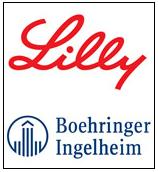Eli Lilly and Boehringer Ingelheim Partner to Develop and Commercialize Several Diabetes Therapies
Earlier this month, Eli Lilly and the German pharmaceutical Boehringer Ingelheim (BI) announced a major partnership to co-develop and co-commercialize several of their diabetes compounds, including BI’s DPP-4 inhibitor linagliptin, BI’s SGLT-2 inhibitor, and Eli Lilly’s two new basal insulins. None of these drugs are approved yet. As a reminder, DPP-4 inhibitors are oral drugs with few side effects, making them popular treatment options for type 2 patients – when taken alone, they typically prompt modest glucose lowering effects, although taken with metformin has shown greater glucose lowering effects in multiple studies. The currently available DPP-4 inhibitors (Merck’s Januvia, Bristol-Myers Squibb/AstraZeneca’s Onglyza, and – outside the US – Novartis’ Galvus and Takeda’s Nesina) are almost indistinguishable in terms of efficacy, tolerability, and safety. Compared to the currently available options, linagliptin could be a more appropriate choice for people with kidney disease, since it is not primarily cleared by the kidneys as Januvia, Onglyza, Galvus, and Nesina are. Assuming favorable regulatory review, linagliptin should be approved in the US and Europe by the middle of this year.
SGLT-2 inhibitors are a new class of oral drugs that cause blood glucose to be filtered by the kidneys and simply lost in urine. The lead SGLT-2 inhibitors, Bristol-Myers Squibb/AstraZeneca’s dapagliflozin and Johnson & Johnson’s canagliflozin, have increased the frequency in urinary and genital tract infections in clinical trials. However, BI’s SGLT-2 inhibitor has not shown these signs in its own trials so far. With a launch projected for 2014, BI’s SGLT-2 inhibitor will likely come to market after its competitors, but it could ultimately prove to be a more attractive option if it does indeed turn out to be safer. For more information on DPP-4 inhibitors and SGLT-2 inhibitors, please see our Learning Curve in diaTribe #8.
In addition, Eli Lilly expects to initiate phase 3 trials later this year for its two basal insulins in development and submit them both for regulatory review in 2014. Taking these developments and the recent partnership with BI into consideration, Eli Lilly could have the industry’s most comprehensive portfolio of diabetes medications in a few years, allowing the company to explore various combination therapies with ease. --VW








